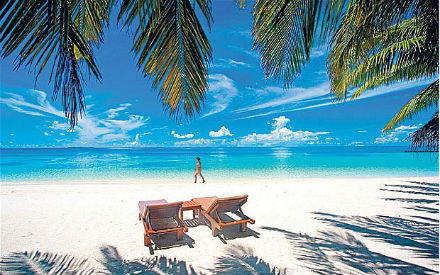Maldives resort owners back bill criminalising tourism boycott call
“The most commonly used method to call for a boycott is social media. We have a lot of trouble selling our packages in tourism fairs and catalogues because of this,” said Ahmed Nazeer, secretary general of the Maldives Association of Tourism Industry (MATI). He told MPs that a law criminalising calls for a tourism boycott is long overdue.

28 Oct 2015, 09:00
An influential organisation representing the Maldives’ tourism industry has backed a bill currently before parliament on criminalising calls for a tourism boycott.
“The main investments in Maldives are in the tourism industry. In my opinion, it is an obligation for any government to pass this bill into law,” MATI Secretary General Ahmed Nazeer told MPs.
The bill proposes making calls for sanctions and tourism boycotts against the Maldives a criminal offence that carries a jail term of between two to 10 years. It also includes provisions for businesses to pursue civil litigation against offenders to seek damages.
Become a member
Get full access to our archive and personalise your experience.
Already a member?
Discussion
No comments yet. Be the first to share your thoughts!
No comments yet. Be the first to join the conversation!
Join the Conversation
Sign in to share your thoughts under an alias and take part in the discussion. Independent journalism thrives on open, respectful debate — your voice matters.




